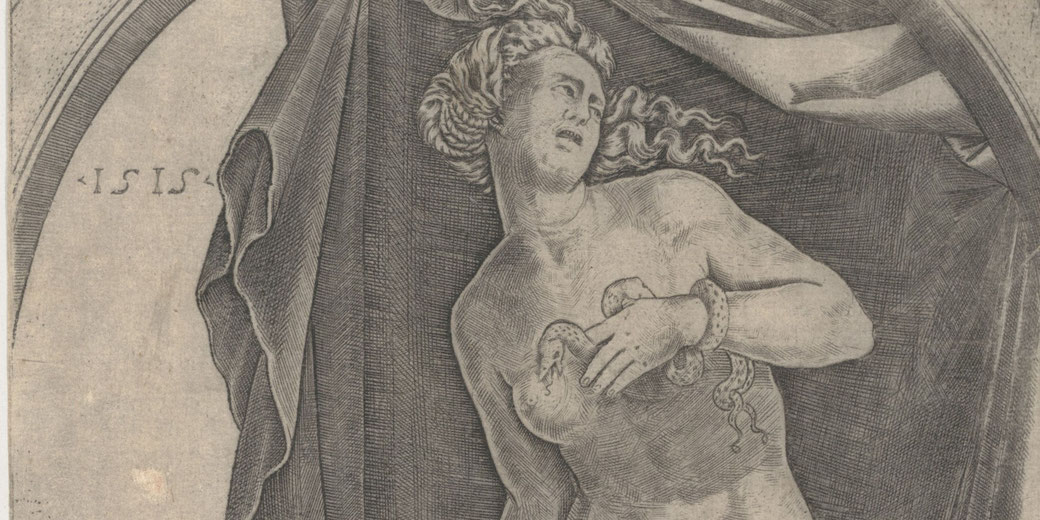The forgotten children of Cleopatra: rediscovering their tragic stories

Cleopatra VII, the last Pharaoh of Ancient Egypt, is a figure that has captured the imagination of people for centuries. Known for her beauty, intelligence, and political savvy, she has been the subject of countless books, movies, and TV shows.
However, one aspect of her life that is often overlooked is her role as a mother. Cleopatra had four children, with two different fathers, and their stories are as fascinating as they are tragic.
From a son who was declared a co-ruler of Egypt but was later executed, to a daughter who married a king and became a cultural icon, the lives of Cleopatra's children are a window into a world of power, ambition, and betrayal.
Who was Cleopatra?
Cleopatra VII was the last pharaoh of Ancient Egypt, who ruled from 51 BC until her death in 30 BC. She was born in Alexandria in 69 BC, and was a member of the Ptolemaic dynasty, which was founded by one of Alexander the Great's generals after his death.
Cleopatra was known for her beauty, intellect, and political savvy, and she was fluent in several languages, including Greek, Egyptian, and Latin. She formed alliances with powerful men, such as Julius Caesar and Mark Antony, and used her intelligence and charm to maintain her grip on power in a time of political upheaval.
Despite her achievements, Cleopatra is perhaps best known for her romantic relationships with Caesar and Antony, which have been the subject of countless books, movies, and plays.
After the defeat of Antony and Cleopatra by Octavian, the future Roman Emperor Augustus, in 31 BC, Cleopatra committed suicide rather than be taken captive to Rome.
Caesarion
Cleopatra's first child, a son named Caesarion, was born in 47 BC. His father was none other than Julius Caesar, the famous Roman general and politician who had a brief affair with Cleopatra during his stay in Egypt.
Caesarion was raised in Egypt and was declared by Cleopatra to be her co-ruler and successor to the throne. However, his claim was disputed by Caesar's adopted son, Octavian, who would later become the first Roman emperor, Augustus.
In 30 BC, after Cleopatra's death, Caesarion was executed on the orders of Octavian, who saw him as a potential threat to his own rule.
Alexander Helios
Cleopatra's second child, another son named Alexander Helios, was born in 40 BC. His father was Mark Antony, a Roman general and politician who had formed an alliance with Cleopatra against Octavian.
Alexander Helios, whose name means "the sun", was raised in Egypt along with his twin sister Cleopatra Selene, and two other siblings.
In 34 BC, Antony and Cleopatra took their children on a grand tour of the eastern Mediterranean, displaying their power and wealth to the world. However, their alliance with Rome was already crumbling, and in 31 BC, Antony and Cleopatra were defeated by Octavian at the Battle of Actium.
After their defeat, the children were taken to Rome by Octavian and paraded as spoils of war. Alexander Helios and his siblings were later sent to live with Octavian's sister Octavia, who had been Antony's wife before he abandoned her for Cleopatra. Alexander Helios disappears from history after this point, and it is unknown what became of him.
Cleopatra Selene
Cleopatra's third child, a daughter named Cleopatra Selene, was born in 40 BC, and like her twin brother Alexander Helios, was raised in Egypt.
After the defeat of her parents, she was taken to Rome along with her siblings, where she was raised by Octavia.
However, in 20 BC, she was married to Juba II, the king of Mauretania, a Roman client state in North Africa.
Cleopatra Selene and Juba II became a powerful couple, renowned for their intelligence and cultural achievements. They had several children together, and their descendants would rule Mauretania for several generations.
Ptolemy Philadelphus
Cleopatra's fourth and final child, another son named Ptolemy Philadelphus, was born in 36 BC. His father was Mark Antony, and like his siblings, he was raised in Egypt.
After the defeat of his parents, he was taken to Rome along with his siblings, where he was raised by Octavia.
However, in 30 BC, after the death of his mother, he was executed on the orders of Octavian, along with his half-brother Caesarion.
Brutal realities of Roman politics
In conclusion, the story of Cleopatra's children is a tragic one, marked by political intrigue, war, and violence.
However, it is also a testament to the resilience of human beings, and the enduring power of family ties.
Cleopatra's descendants, both through her children with Mark Antony and through her daughter Cleopatra Selene, would continue to play important roles in the history of the Mediterranean world for centuries to come.
What do you need help with?
Download ready-to-use digital learning resources
Copyright © History Skills 2014-2024.
Contact via email
With the exception of links to external sites, some historical sources and extracts from specific publications, all content on this website is copyrighted by History Skills. This content may not be copied, republished or redistributed without written permission from the website creator. Please use the Contact page to obtain relevant permission.





